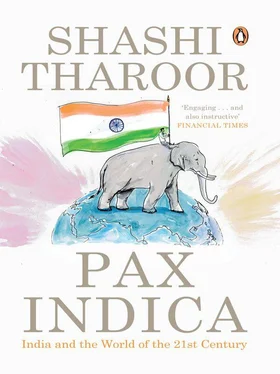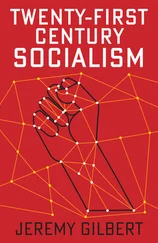Young Taseer had, in his piece, put the onus on the Pakistani Army for that country’s problems, and particularly for diverting the vast amounts of American aid it has received (he underestimated it at ‘$11 billion since 9/11’) to arming itself against India. He added, powerfully, words I would have gladly put my own name to: ‘In Afghanistan, it has sought neither security nor stability but rather a backyard, which — once the Americans leave — might provide Pakistan with “strategic depth” against India. In order to realize these objectives, the Pakistani army has led the U.S. in a dance, in which it had to be seen to be fighting the war on terror, but never so much as to actually win it, for its extension meant the continuing flow of American money. All this time the army kept alive a double game, in which some terror was fought and some — such as Laskhar-e-Tayyba’s 2008 attack on Mumbai — actively supported.
‘The army’s duplicity was exposed decisively this May,’ he went on, ‘with the killing of Osama bin Laden in the garrison town of Abbottabad. It was only the last and most incriminating charge against an institution whose activities over the years have included the creation of the Taliban, the financing of international terrorism and the running of a lucrative trade in nuclear secrets. This army, whose might has always been justified by the imaginary threat from India, has been more harmful to Pakistan than to anybody else. It has consumed annually a quarter of the country’s wealth, undermined one civilian government after another and enriched itself through a range of economic interests, from bakeries and shopping malls to huge property holdings.’
It is hard to imagine anyone in India, however sympathetic they might be to Pakistan, dissenting from this view of the malign role of the Pakistani military. In our naivety, we also tend to assume that Pakistani liberals would agree with us, seeing the salvation of their land lying in greater democracy and development, free of the stranglehold of the world’s most lopsidedly funded military. Alas, judging by their reactions to Taseer’s article, this seemed not to be the case.
In his rebuttal, Ejaz Haider went into great detail about the strength and deployment patterns of the Indian Army, as if to justify the Pakistani military’s behaviour. But there was no recognition whatsoever that India’s defence preparedness is prompted entirely by the fact that Pakistan has launched four incursions into our territory, in 1947, 1965, 1971 and 1999; that India is a status quo power that manifestly seeks nothing more than to be allowed to grow and develop in peace, free from the attentions of the Pakistani military and the militants and terrorists its sponsors; and, bluntly, that there is not and cannot be an ‘Indian threat’ to Pakistan, simply because India wants nothing from Pakistan except peace.
No, as I have already argued, the ‘Indian threat’ is merely a useful device cynically exploited by the Pakistani military to justify their power and pelf. But Pakistani liberals are particularly prone to the desire to prove themselves true nationalists; it is the best way to ensure that their otherwise heretical opinions are not completely discredited by the men in uniform who hold the reins of power in the state.
In a newspaper column, therefore, I wrote that this otherwise minor editorial spat had demonstrated to me that Indians needed to put aside our illusions that there are many liberal partners for us on the other side of the border who echo our diagnosis of their plight and share our desire to defenestrate their military. Nor, I added, should we be surprised: a Pakistani liberal is, after all, a Pakistani before he is a liberal.
This column provoked howls of even greater outrage across the border than young Taseer’s original effort had. (It didn’t help that an Indian headline writer had chosen to title it ‘Delusional Liberals’, which raised additional hackles among those in Pakistan who felt the noun, but not the adjective, applied to them.) The reactions, both in print and even more angrily in social media forums, were sharp. Inevitably, I was subjected to the usual bouts of invective and abuse that have so cheapened discourse in the age of the Internet, where the refuge provided by anonymity has encouraged a level of vileness that few would permit themselves to express face-to-face. But those need not detain us here. Far more interesting and worthy of attention were three columns in the mainstream Pakistani media responding to mine. By broadening and deepening the terms of the debate beyond the Taseer piece, they made my original column worth writing.
The tenor of the three articles (none of whose authors I had met by then or known personally) varied. The most liberal of the trio, Marvi Sirmed, in her column in the Daily Times , began by clarifying that she had actually no disagreement with the central thesis of Aatish Taseer’s article (on the various misdeeds of the Pakistani military establishment), but had rejected the author’s assertion that his father, Salman Taseer, the late Governor of Pakistani Punjab, ‘hated’ India. She also objected to Aatish’s claim that Pakistan was the ‘dream of a poet’ (Muhammad Iqbal, who first wrote of a Muslim homeland within India), though this was not an issue I had dwelt on in my own piece. And she ended with two impressive points I had no difficulty acknowledging: that I should be more conscious of the diversity of the Pakistani liberal community, and that Ms Sirmed saw herself as a proud Pakistani whose love of her country did not oblige her to hate India. Marvi Sirmed is the kind of intelligent, broad-minded Pakistani most Indians would have no difficulty engaging with, and I tipped my (metaphorical) Gandhi cap to her.
Ejaz Haider, whose riposte to Aatish Taseer had sparked my initial piece, was less accommodating of my core argument, seeing it as an exercise in ‘considered perception-formation and reinforcement’. By this he seemed to imply that my article was part of a devious Indian conspiracy to affect perceptions of his country negatively; in fact he titled his column ‘It’s Not Just Mr. Tharoor!’ My fellow conspirators (on the basis of recent articles we had each written) apparently included young Taseer, the Mumbai-born American strategist Ashley Tellis and the Indian analyst Nitin Pai, who has suggested (as I have done separately) that the United States should end its overgenerous aid to Pakistan’s military — jihadi complex. Ejaz Haider then proceeds to put words in our collective mouths to the tune that we seek ‘India’s supremacy in the region’ and the resolution of disputes only ‘on India’s terms’. None of us has made so fatuous a suggestion, but the exaggeration was, alas, necessary to demolish our case.
Then Ejaz Haider (who, it must be said, is one of Pakistan’s finest columnists, and whom I have enjoyed reading for years) got on to firmer ground. He admitted that there is a military — civilian divide in Pakistan, but argued that most of his country’s conflicts with India have originated under, or at the instigation of, civilian politicians, not military rulers. In any case, this is ‘Pakistan’s internal matter’ and acknowledging it should not imply any neglect of national security or abdication of Pakistani self-interest. And the clincher: ‘we don’t need advice from across the border’ (especially, he adds gratuitously, from pundits who ‘crawled on their bellies’ during the Emergency, a charge from which all those he was responding to are in fact exempt).
Ejaz Haider was joined in the pages of Pakistan’s Express Tribune by Feisal Naqvi, who found my arguments ‘cretinous in the extreme’ and ‘gratuitously smug about India’s lack of strategic ambitions’. Invective aside, Naqvi’s argument was that while Pakistanis were obsessed with India, ‘the opposite of India-obsessed is not India-submissive’ (which, again putting words into my mouth, I allegedly want them to be). Mr Naqvi also finds, somewhere between the lines of my column, something I never wrote — a rejection of the very legitimacy of Pakistan’s existence. Pakistani liberals, he asserts, are happy being Pakistani, value their military and have no desire to dismantle it. My article instead ‘delegitimizes’ them in the eyes of the Pakistani establishment. (Sigh.)
Читать дальше












